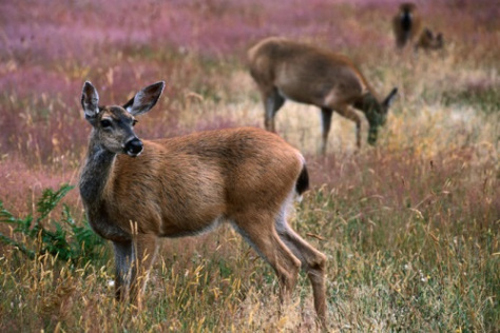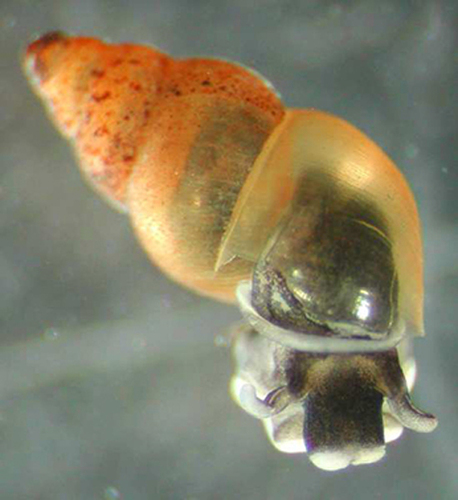Long Range Fish Report
From Sportfishing
From Sportfishing
Fish Report for 2-17-2016

State’s Wildlife Action Plan Receives Stamp of Approval and Notable Award
2-17-2016
California Department of Fish & Wildlife
California’s key wildlife conservation planning tool, the State Wildlife Action Plan (SWAP), has received final approval from the U.S. Fish and Wildlife Service (USFWS). The plan, which recently underwent a comprehensive 10-year update, also won the California Association of Environmental Professionals (AEP) award for Outstanding Environmental Resource Document. The award will be presented at the AEP conference in San Diego in April.
“SWAP 2015 is the product of many individuals and organizations working together to ensure California’s wildlife resources are around for generations to come,” said CDFW Director Charlton Bonham. “A huge thank you goes out to everyone who participated in this herculean process. I am proud of the solid plan we now have in place to address the serious environmental challenges we face. It is particularly gratifying to have these efforts recognized by the California Association of Environmental Professionals.”
The action plan identifies and prioritizes at-risk species and habitats, and provides conservation strategies to help protect and conserve these species. The plan is not a regulatory document. Rather, it is meant to build consensus and collaboration by identifying best management practices for conserving the state’s most vulnerable aquatic, marine and terrestrial resources.
“SWAP 2015 focuses on conservation of wildlife resources using an approach that is in harmony with a growing human population and the need for resilience in the face of a changing climate,” explained Bonham. “It is a flexible, but scientifically grounded plan. Its implementation relies on making important and helpful conservation information more accessible to resource managers and the public, and on developing lasting partnerships with a broad array of governments, agencies, organizations, businesses, and citizens.”
The USFWS designates Regional Review Teams to assess each state’s wildlife action plan and recommend approval. California’s revised plan was reviewed by Alaska’s Department of Fish and Wildlife and by the USFWS’s Migratory Birds and State Programs for Region 7.
Approval of the plan opens up millions of dollars in federal grant funding for programs that benefit at-risk species such as the Sierra Nevada bighorn sheep, coho salmon, and others.
As mandated by the U.S. Fish and Wildlife Service, CDFW revises the State Wildlife Action Plan every 10 years. In addition to the conservation strategies addressed for each ecosystem, the plan also contains nine companion plans to address key overarching topics, including agriculture, consumptive and recreational users, energy development, forests and rangeland, land-use planning, transportation planning, tribal lands, water management, and marine resources.
The SWAP 2015 is available online at www.wildlife.ca.gov/SWAP/.
“SWAP 2015 is the product of many individuals and organizations working together to ensure California’s wildlife resources are around for generations to come,” said CDFW Director Charlton Bonham. “A huge thank you goes out to everyone who participated in this herculean process. I am proud of the solid plan we now have in place to address the serious environmental challenges we face. It is particularly gratifying to have these efforts recognized by the California Association of Environmental Professionals.”
The action plan identifies and prioritizes at-risk species and habitats, and provides conservation strategies to help protect and conserve these species. The plan is not a regulatory document. Rather, it is meant to build consensus and collaboration by identifying best management practices for conserving the state’s most vulnerable aquatic, marine and terrestrial resources.
“SWAP 2015 focuses on conservation of wildlife resources using an approach that is in harmony with a growing human population and the need for resilience in the face of a changing climate,” explained Bonham. “It is a flexible, but scientifically grounded plan. Its implementation relies on making important and helpful conservation information more accessible to resource managers and the public, and on developing lasting partnerships with a broad array of governments, agencies, organizations, businesses, and citizens.”
The USFWS designates Regional Review Teams to assess each state’s wildlife action plan and recommend approval. California’s revised plan was reviewed by Alaska’s Department of Fish and Wildlife and by the USFWS’s Migratory Birds and State Programs for Region 7.
Approval of the plan opens up millions of dollars in federal grant funding for programs that benefit at-risk species such as the Sierra Nevada bighorn sheep, coho salmon, and others.
As mandated by the U.S. Fish and Wildlife Service, CDFW revises the State Wildlife Action Plan every 10 years. In addition to the conservation strategies addressed for each ecosystem, the plan also contains nine companion plans to address key overarching topics, including agriculture, consumptive and recreational users, energy development, forests and rangeland, land-use planning, transportation planning, tribal lands, water management, and marine resources.
The SWAP 2015 is available online at www.wildlife.ca.gov/SWAP/.
< Previous Report Next Report >
More Reports
Mudsnails found in Lower Feather
Feather River
2-12-2016
The California Department of Fish and Wildlife (CDFW) has confirmed the presence of New Zealand mudsnails in the low-flow section...... Read More
California Department of Fish & Wildlife Reports
for Thursday, February 11th, 2016• How to find 'What’s Open and What’s Closed' in ocean waters?
• How do hunters deal with fleas and ticks?

LongRangeSportfishing.net © 2025. All Rights Reserved.
Website Hosting and Design provided by TECK.net
Website Hosting and Design provided by TECK.net